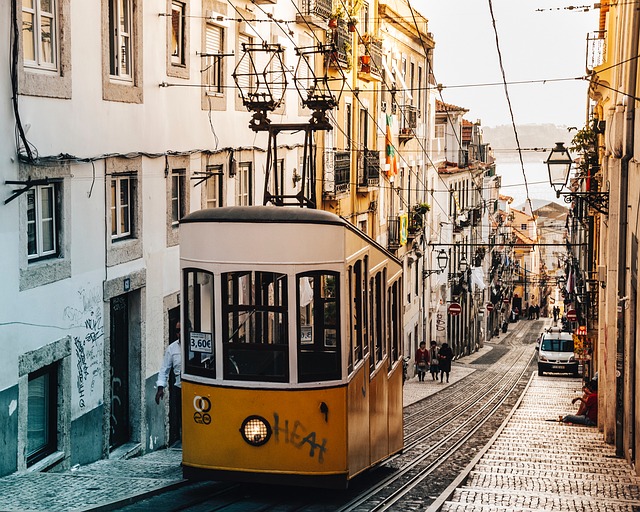Stay safe abroad with these easy to remember tips for first time travellers.

image by PublicCo CC0
1. Walk tall
A confident stride, with head held high will give off a “don’t mess with me“ signal, and it will also mean you are more alert and aware of what is going on in your surroundings. Never walk with your head buried in a map, or staring at your phone!
2. Ditch the designer labels
Designer clobber and premium brand accessories will give the impression you have something worth stealing. It’s not just a matter of pick pockets hoping to take a wallet, phone or watch, in some places people will demand you hand over your shoes, trainers or coat as well.
3. Leave expensive electronics at home
It might get broken, it might get lost, or it could attract the attention of an opportunistic thief. Cut the risk of losing your expensive electronics entirely and only take what you need. Thankfully these days, smartphones can take amazing pictures, and keep us in touch via email, so no need to take a camera and laptop on holiday too.
4. Avoid going off the beaten track alone
If you know a certain part of town has a reputation for being on the wilder side, stay clear – at least until you have become more travel savvy. If you can’t resist the urge to explore, book on an official organised tour, with a recognised excursion company. Avoid going off with a local guide unless your travel provider can vouch for them.
5. Be cautious of whose company you keep
While there is safety in numbers, it depends on who’s in the group! Stay alert, stay sober, and always tell someone where you are going – whether it is the hotel or hostel staff, or family and friends back home.
6. Watch your wallet, purse, passport, phone….
Keep what you can in a safe, only take the money you need for the day, and keep your belongings well hidden from others. Always make sure that your essentials are with you, within view, not left on or under a table, and carry your bag in front of you – some pick pockets simply slice open the bottom of the bag to get at stuff – and you won’t even know it is going on if it’s tucked behind your arm, or on your back!
7. Get Travel Insurance
If anything does go wrong… lost or stolen passport, lost or stolen wallet, or if you have been injured in an altercation, travel insurance is the one thing that can help you get back home. It will cover costs such as travel to your local embassy and passport replacement, and of course getting you back even if you’ve lost your tickets.
8. Note down important numbers
To make sure that you can get help if you need it, you need to know who to call. Having the local embassy phone number, your passport number, and travel insurance number on your phone is great, but make sure you have a hardcopy of these details back at your accommodation in case your phone is lost, damaged, or stolen. You should also make a note of family numbers in case of an emergency.
9. Think first aid
Infections and illness abroad is no laughing matter – make sure you keep an eye on bites and stings, and at the hint of a tummy bug, make sure that you avoid dehydration, it can be deadly! At the very least, pack a simple first aid kit with antiseptic cream and rehydration sachets in – ideally take a first aid kit that covers the risks specific to your destination – this could include sterile IV kits, antibiotics, and malaria treatment
10. Do all you can to avoid food poisoning
Food poisoning can make you very ill indeed. At best it’ll ruin your holiday, at worst, you’ll find yourself in hospital in a life-threatening situation. Make sure you follow the guidelines for avoiding food poisoning abroad. The risk varies between destinations, but generally speaking, as long as food is piping hot and thoroughly cooked, it should be safe to eat. Particular foods to be aware of include cheese, ice cream, seafood, salads, and unpeeled fruit and vegetables. Tapwater and ice are a no-no too.
